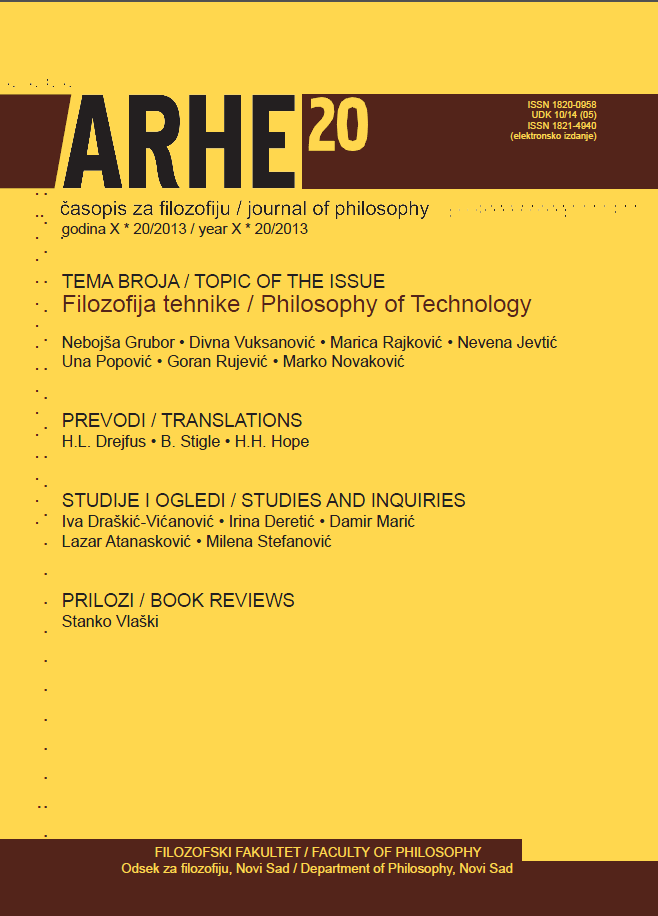O tehnici prirode kod Kanta
On Kant’s Technology of Nature
Author(s): Nevena JevtićSubject(s): Epistemology, German Idealism, Philosophy of Science, Ontology
Published by: Филозофски факултет, Универзитет у Новом Саду
Keywords: Kant; Critique; Power of judgment; Technology of nature; Purpose; Organism;
Summary/Abstract: The author begins this essay by investigating the justifiability of thesis that claims that in Critique of power of judgment one can find evidence of a „crises“ of Kant’s critique, which errupts due to the extraordinary „fact” of organization that is impossible to ignore. Kant states his arguments in a form of so-called technology of nature in Critique of power of judgment, which is meant to give account on organism beyond the notion of mechanism of nature and causality of freedom. From the standing point of the first Critique, organism is impossible according to the first postulate of empirical thinking, which states that possible simply means that which is in accordance to the formal conditions of experience. The impossibility of this object is confirmed also in the third Critique, for it is claimed there that it is possible to view something as a purpose only if the form of that thing is not possible by the laws of nature, and even the empirical cognition of that thing demands notion of the mind (purpose). Organism, defined as a natural purpose, represents the problem par excellence in the wake of Kant’s philosophy. The author will also investigate a possibility to contrast this claim regarding the crises of critique to the equally plausible argument that this concept of technology of nature is one of the pivots of criticism.
Journal: Arhe
- Issue Year: 2013
- Issue No: 20
- Page Range: 38-50
- Page Count: 13
- Language: Serbian

